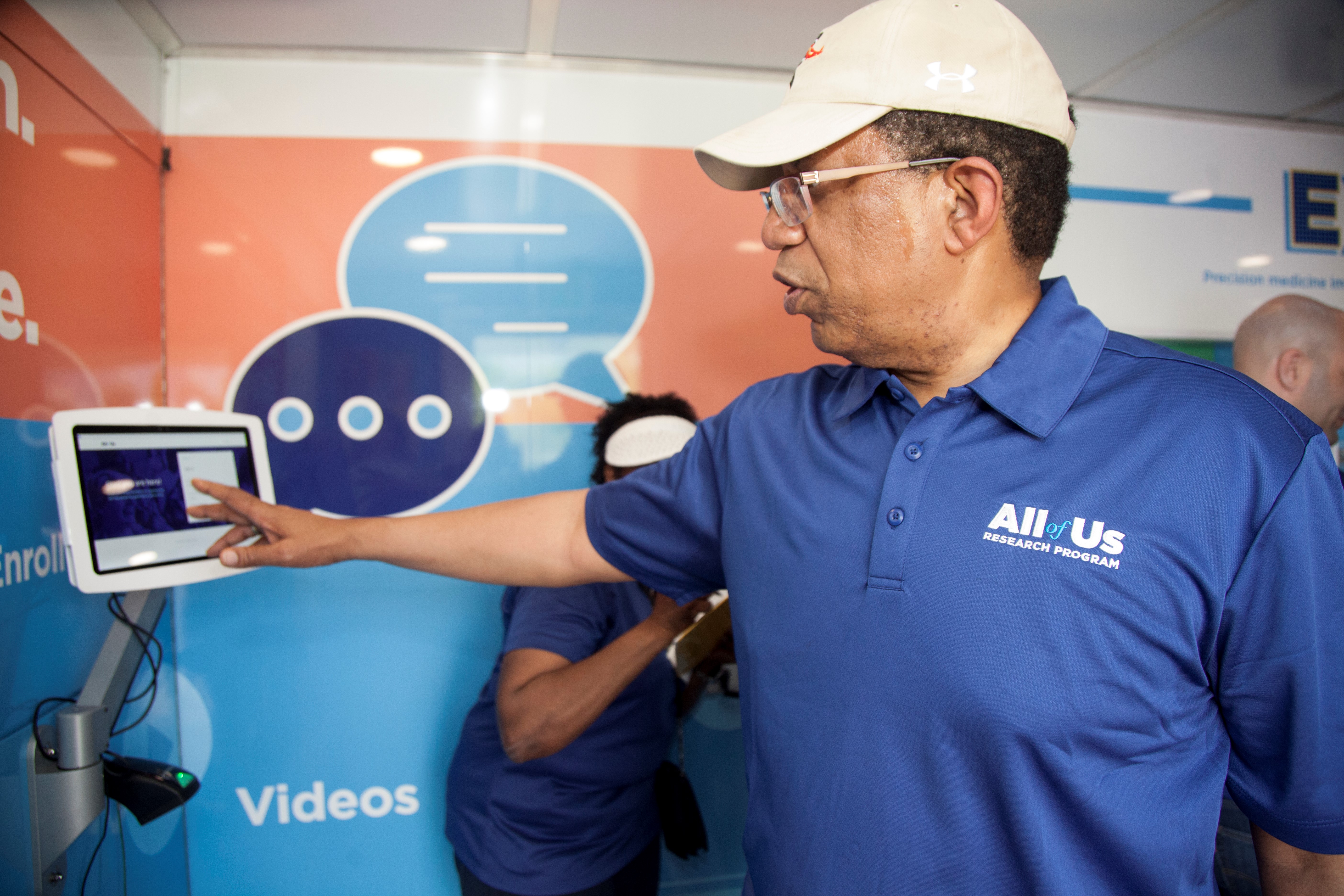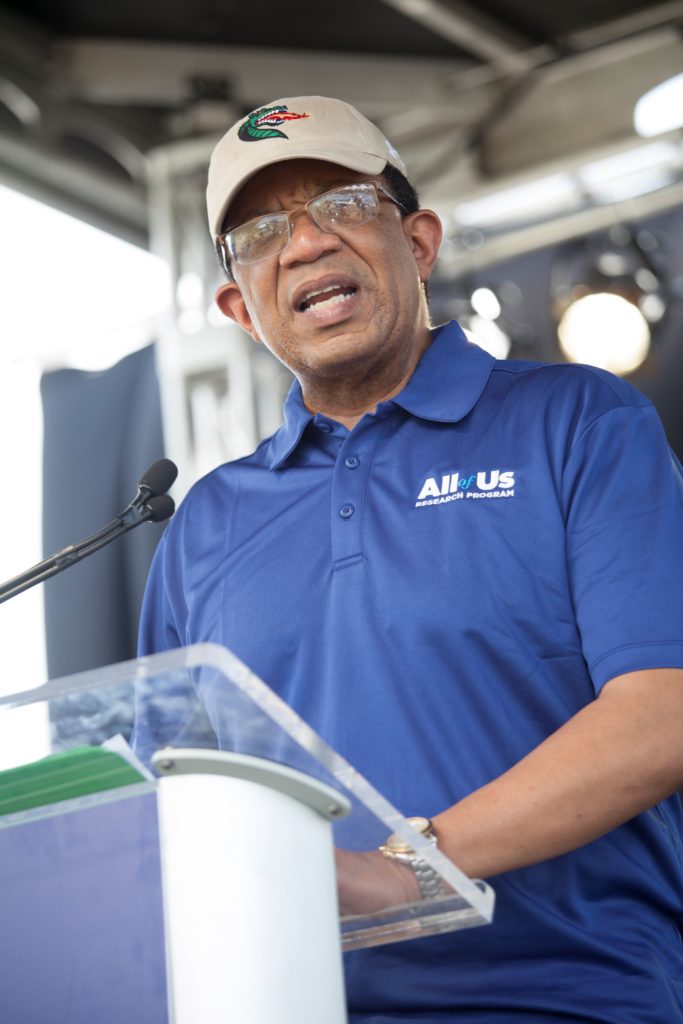
By Solomon Crenshaw Jr.
For the Birmingham Times
Selwyn Vickers, MD, was a follower before he was a leader. He followed an uncle into the medical field on his way to becoming a senior vice president and dean of the University of Alabama at Birmingham (UAB) School of Medicine.
Born in Demopolis and raised in Tuscaloosa and Huntsville, Vickers was inspired by his uncle, Leroy Vickers, MD. The younger Vickers was 15 when his uncle became the first physician to graduate from Tuscaloosa’s Stillman College in the early 1970s.
“I had a chance to be exposed to, shadow, and really see that being a physician was a dream that could come true,” he said. “It was my exposure to him that helped me believe that I could be a doctor.”
Vickers was raised in a state that has produced two surgeons general: David Satcher, MD, and Regina Benjamin, MD.
His uncle Leroy Vickers is a family practitioner in Cincinnati, Ohio. The nephew he inspired to pursue a career in medicine is a world-renowned surgeon, pancreatic cancer researcher, and pioneer in health disparities research.
“I’m a gastrointestinal surgical oncologist,” said UAB’s Vickers. “I didn’t completely follow what [my uncle] did, but I chose my own path based on how I saw medicine and where I thought I could have the most significant impact.”
Selwyn Vickers earned baccalaureate and medical degrees from Johns Hopkins University in Baltimore, Md. That’s where he completed his surgical training, as well as a chief residency. It’s also where he teamed up with his mentor John Cameron, MD, the world’s leading pancreatic surgeon, who proved to be a powerful influence on the medical student. Another physician who influenced Vickers: Levi Watkins, MD, a cardiac surgeon from Montgomery, Ala.
All of Us

Precision medicine and genomic medicine have become central themes at UAB for Vickers, who is a significant figure in the national All of Us Research Program—an effort to advance individualized prevention, treatment, and care for people of all backgrounds. This month, the National Institutes of Health (NIH) opened national enrollment for the program; in the state of Alabama, people age 19 and older, regardless of health status, are eligible to enroll.
The overall aim of All of Us is to enroll one million or more volunteers and oversample communities that have been underrepresented in research to make the program the largest, most diverse resource of its kind.
“I believe this effort has the opportunity to transform health care in America, but most importantly in Birmingham and in the Deep South,” said Vickers. “We believe that as an institution in the Deep South with significant research interest, [UAB] has the responsibility as well as a unique opportunity to lead our country.”
Birmingham’s rankings are high in the worst aspects of health care, including hypertension, cardiac disease, and diabetes.
“We believe that understanding our genome, our makeup, and our environment will have a huge impact on these outcomes,” Vickers said. “And there’s no better place to do that than in Birmingham and the rest of the Deep South.”
Reaching Out
Vickers acknowledged that recruiting participants for the program isn’t easy, given Alabama’s troublesome medical research history. It was here that researchers knowingly failed to treat syphilis patients appropriately after the 1940s validation of penicillin was found to be an effective cure for the disease during the Tuskegee Syphilis Study.
Times have changed, though, and UAB has an excellent track record of reaching out to communities and building trust.
“You have to build relationships to make it happen,” Vickers said. “The important part of All of Us is it’s going to make sure that no one’s left out. If we’re ever going to create a health care environment that’s effective, safe, and inclusive, it has to include all of us. We’re excited in Alabama that UAB is being a leader and that [people] from diverse backgrounds can be included.”
As a UAB dean for the past five years, Vickers leads the medical school’s main campus in Birmingham and the regional campuses in Montgomery, Huntsville, and Tuscaloosa.
Back Home
Vickers, 58, spent his formative years as a young faculty member at UAB, beginning in 1994, and directed the section of gastrointestinal surgery from 2000 to 2006.
He served as co-director of UAB’s Minority Health and Health Disparities Research Center (MHRC) and Pancreaticobiliary Center. With Mona Fouad, MD, director of the UAB Division of Preventive Medicine and the MHRC, Vickers helped create Enhancing Minority Participation in Clinical Trials (EMPaCT), a consortium of five cancer centers aimed at increasing the participation by minorities in clinical trials.
Vickers also was a senior scientist in the UAB Comprehensive Cancer Center and an associate scientist in the Gene Therapy Center.
In 2006, Vickers left UAB to serve as chair of the University of Minnesota’s Department of Surgery, where his lab was instrumental in developing the injectable cancer drug Minnelide, which entered phase-one testing in September 2013. (Vickers has a financial interest in the pharmaceutical company licensed to develop the drug, Minneamrita Therapeutics LLC.)
In 2013, Vickers returned to UAB, where he assumed the roles of senior vice president for medicine and dean of the School of Medicine. He and his wife, Janice, who also is from Alabama, have been married since 1988; their parents live in Huntsville. The Vickers have four children: Lauren, Adrienne, Lydia, and Benjamin.




